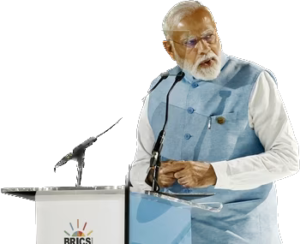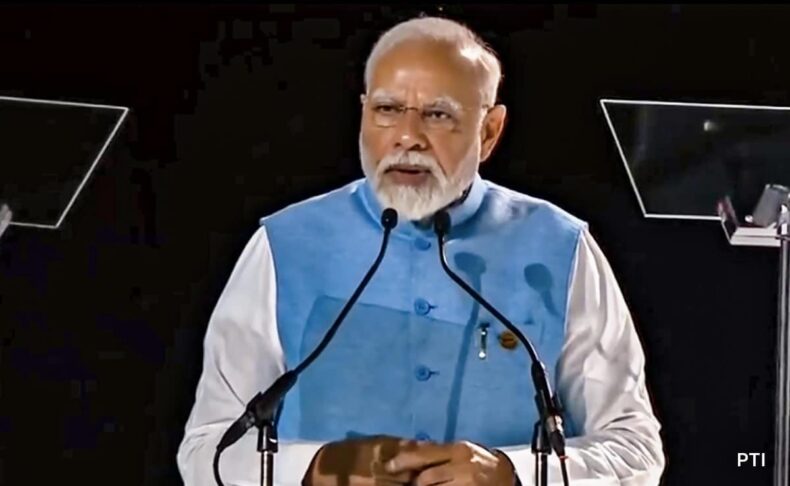Prime Minister Narendra Modi addressed the BRICS Business Forum in South Africa, highlighting India’s economic reforms and technological advancements. He reaffirmed India’s role as a global growth engine in the years ahead. PM Modi reiterated India’s resolve to transform into a developed nation by 2047 and applauded the BRICS Business Council’s instrumental role in fostering economic cooperation.

UPI’s Triumph and Global Ambitions

PM Modi hailed India’s achievements in the financial domain, particularly the rapid ascent of the Unified Payments Interface (UPI), a homegrown digital payment system that has revolutionized financial transactions in India. Emphasizing India’s leadership in digital transactions, PM Modi highlighted UPI’s potential for international expansion. The platform’s success has not only ensured financial inclusion and transparency but also marked India’s ascent as a global contender in economic innovation.
India’s Economic Vision and Collaborative Endeavors
In his discourse, PM Modi outlined India’s economic trajectory, envisioning it as a $5 trillion economy. He underscored the bolstering of investor confidence through groundbreaking initiatives such as GST and the Insolvency and Bankruptcy Code. The Prime Minister also shed light on India’s progress across diverse sectors including renewable energy, manufacturing, and technology. The “Make in India, Make for the World” approach reflects India’s commitment not only to its domestic growth but also to international advancements.
South Africa played host to a momentous address by Prime Minister Narendra Modi at the BRICS Business Forum, where he underscored India’s dynamic economic reforms and technological prowess, reinforcing its stance as a pivotal driver of global growth in the years to come. Against this backdrop, PM Modi reiterated India’s unwavering determination to transition into a fully developed nation by 2047, while commending the essential role played by the BRICS Business Council in nurturing international economic collaboration.
At the heart of PM Modi’s address was the soaring success of India’s homegrown marvel, the Unified Payments Interface (UPI), a digital payment system that has completely transformed the financial landscape within the nation. PM Modi celebrated India’s status as a frontrunner in digital transactions, citing UPI’s potential for expansion on a global scale. This remarkable achievement not only facilitated financial inclusion and transparency but also underscored India’s ascent as a formidable contender in the realm of economic innovation.
In outlining India’s economic vision, PM Modi projected the nation’s imminent journey toward becoming a $5 trillion economy. He accentuated the amplification of investor confidence catalyzed by groundbreaking initiatives like the Goods and Services Tax (GST) and the Insolvency and Bankruptcy Code.
Furthermore, the Prime Minister shone a light on India’s commendable strides across a spectrum of sectors, including renewable energy, manufacturing, and cutting-edge technology. The ethos of “Make in India, Make for the World” encapsulates India’s commitment to not only fostering domestic growth but also to forging a trail of international progress.
As the world navigates economic uncertainties, India’s ascendancy under PM Modi’s leadership offers a beacon of hope. With its resolute dedication to inclusive and sustainable growth, India’s journey holds the promise of influencing global progress and development.
In an era where global stability and economic growth are paramount, India’s aspirations to become a global growth engine are noteworthy. However, a discerning evaluation of the challenges, the inclusivity of these strategies, and their impact on the grassroots is essential. The lofty goals set forth by PM Modi should be met with a critical yet constructive dialogue, ensuring that the pursuit of economic prosperity aligns with the well-being and progress of all its citizens.
The vision of “Make in India, Make for the World” is a catchy slogan, but the ground reality demands a closer examination of its impact on local businesses, job creation, and income distribution.













